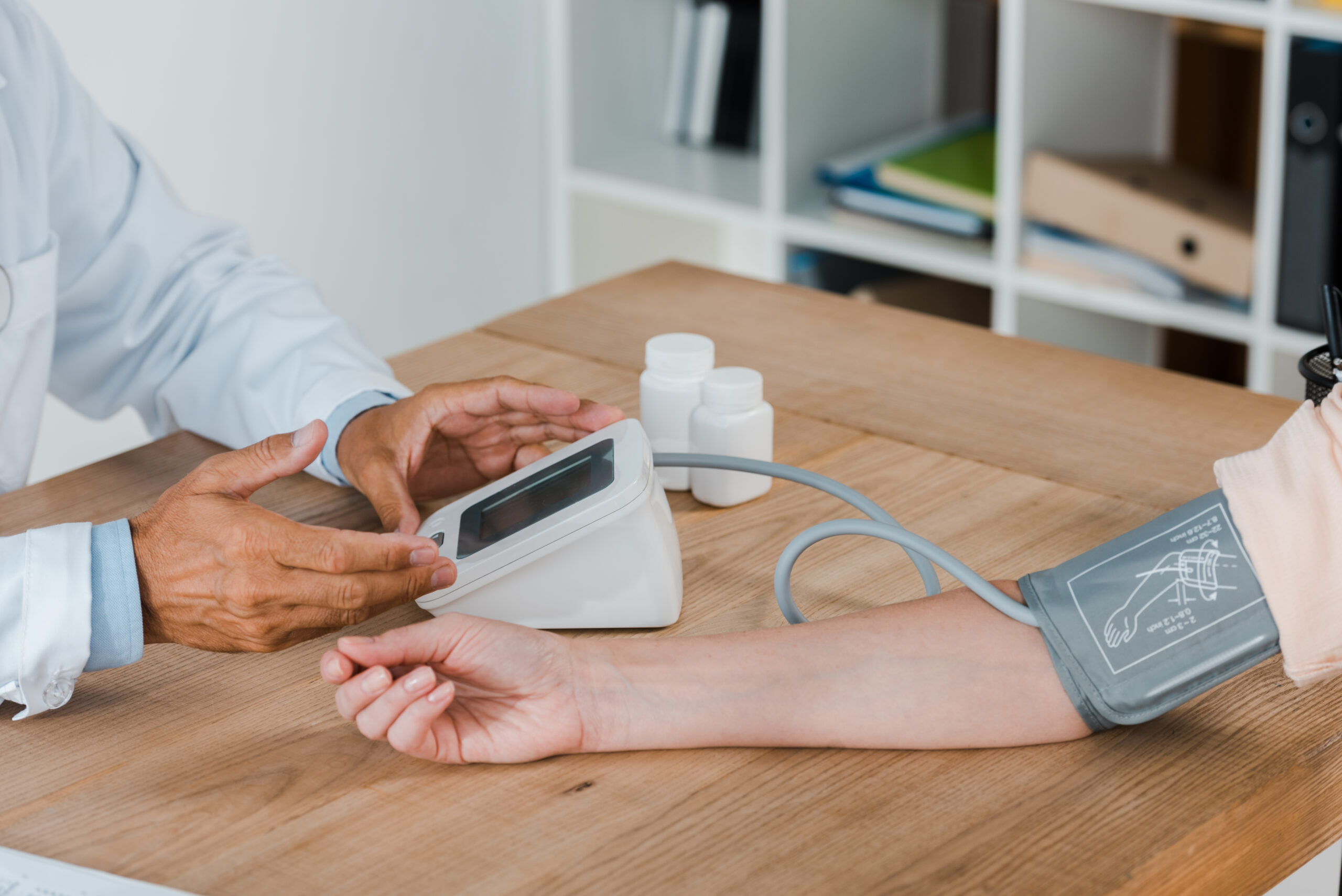The Silent Killer: Why High Blood Pressure Often Goes Unnoticed

High blood pressure, also known as hypertension, is often referred to as the “silent killer.” It affects over a billion people worldwide, although an estimated 46% of adults are not even aware they have the condition. This ominous nickname highlights its dangerous nature – hypertension can quietly damage your body for years before symptoms appear if they show up at all. For patients in Tampa Bay and beyond, understanding and addressing high blood pressure is critical for long-term health and well-being.
What is High Blood Pressure?
Blood pressure is the force of blood pushing against the walls of your arteries as your heart pumps. It’s measured using two numbers:
- Systolic pressure (the top number): the pressure in your arteries during a heartbeat.
- Diastolic pressure (the bottom number): the pressure in your arteries between beats.
A normal blood pressure reading is typically less than 120/80 mmHg. Readings consistently above 140/90 mmHg may indicate hypertension.
Why is High Blood Pressure Dangerous?
When your blood pressure is too high, it increases the strain on your heart and blood vessels, leading to serious complications over time, including:
- Heart disease: The added pressure makes your heart work harder, potentially leading to heart attacks, heart failure, or an enlarged heart.
- Stroke: Hypertension can lead to blocked or burst blood vessels in the brain.
- Kidney damage: High blood pressure can harm the delicate vessels in your kidneys, affecting their ability to function.
- Vision loss: Damage to the blood vessels in the eyes can cause blurred vision or blindness.
The Silent Nature of Hypertension
One of the most concerning aspects of hypertension is its lack of symptoms. Many individuals with high blood pressure feel completely normal, which is why it’s often called a “silent” condition. Without routine check-ups, it can go undiagnosed for years, during which time significant damage may occur.
Some individuals may only experience mild symptoms, such as headaches, shortness of breath, or nosebleeds, but these typically appear only when blood pressure reaches dangerously high levels, which can mean it’s already too late.
Who is at Risk?
Certain factors increase your likelihood of developing high blood pressure, including:
- Age: Risk increases as you grow older.
- Family history: Genetics plays a significant role in hypertension.
- Lifestyle choices: Smoking, poor diet, lack of exercise, and excessive alcohol consumption all contribute to the development of hypertension.
- Chronic conditions: Diabetes, kidney disease, and sleep apnea are commonly seen alongside hypertension.
How to Protect Yourself
While high blood pressure is dangerous, it’s also preventable and manageable with proactive steps:
- Know your numbers: Regular blood pressure screenings are essential, especially if you have risk factors.
- Adopt a heart-healthy diet: The DASH (Dietary Approaches to Stop Hypertension) diet emphasizes fruits, vegetables, whole grains, and lean proteins.
- Stay active: Aim for at least 30 minutes of moderate exercise most days of the week.
- Manage stress: Chronic stress can raise blood pressure. Techniques like meditation, yoga, and deep breathing can help.
- Quit smoking and limit alcohol: Both can negatively affect your blood pressure and overall health.
- Take prescribed medications: If your doctor prescribes medication, follow their instructions carefully.
Dr. Kavita Rao is Here to Help Manage Hypertension
At the office of Dr. Kavita Rao in St. Petersburg, an internal medicine practice, we are dedicated to helping our patients monitor and manage their blood pressure and other vital signs. Through regular check-ups, personalized treatment plans, disease management, and patient education, we aim to empower our Tampa Bay neighbors to take control of their health. Schedule an appointment with us today by calling 727-525-0900, and take the first step toward a healthier future.

